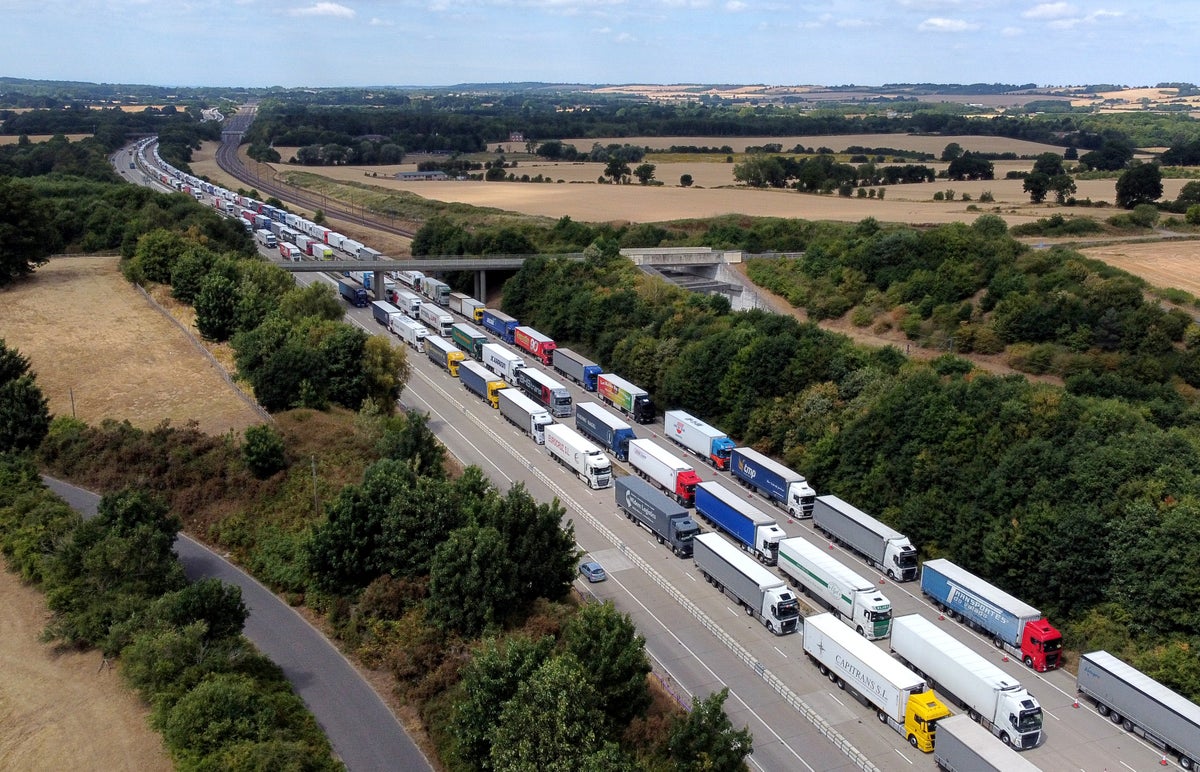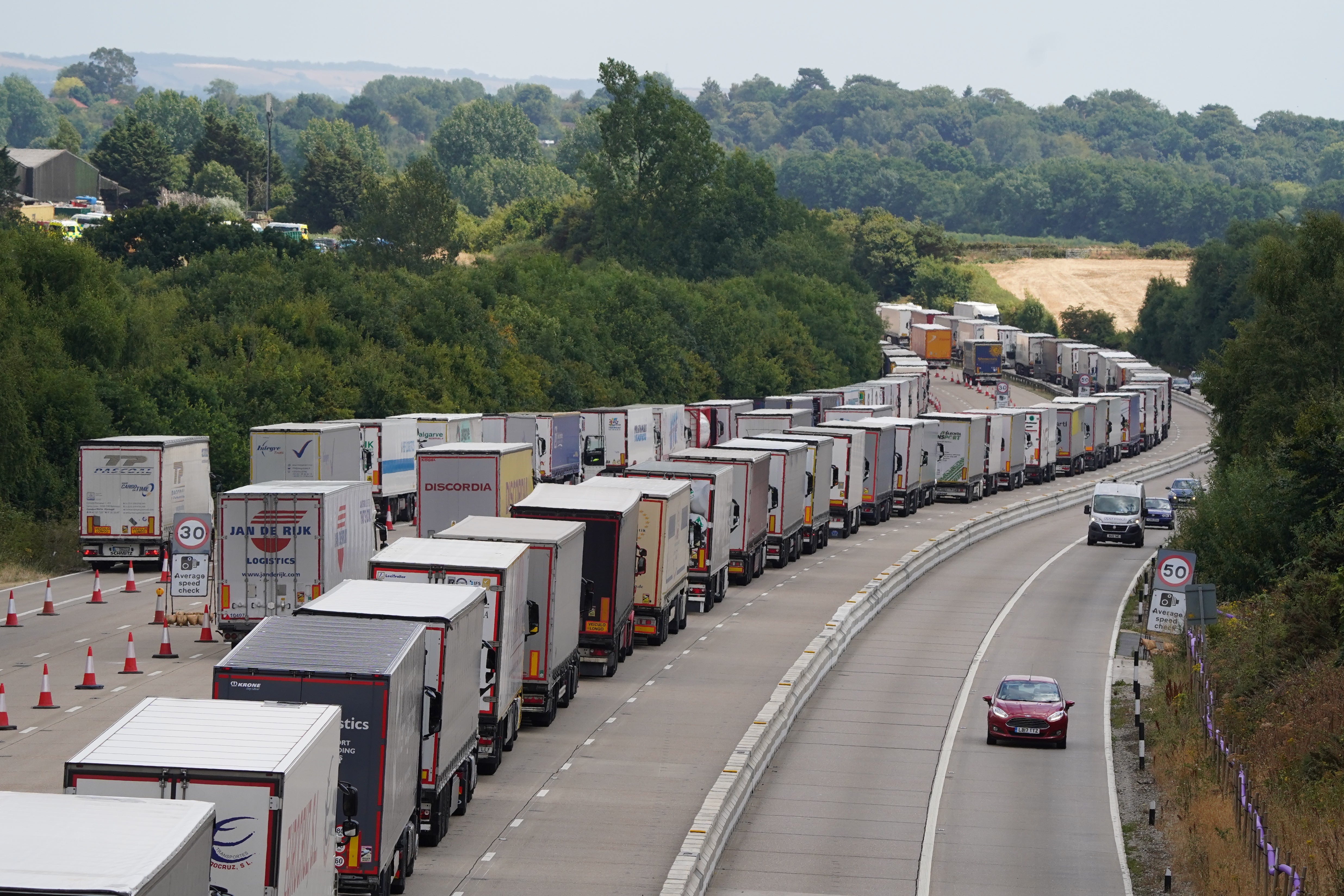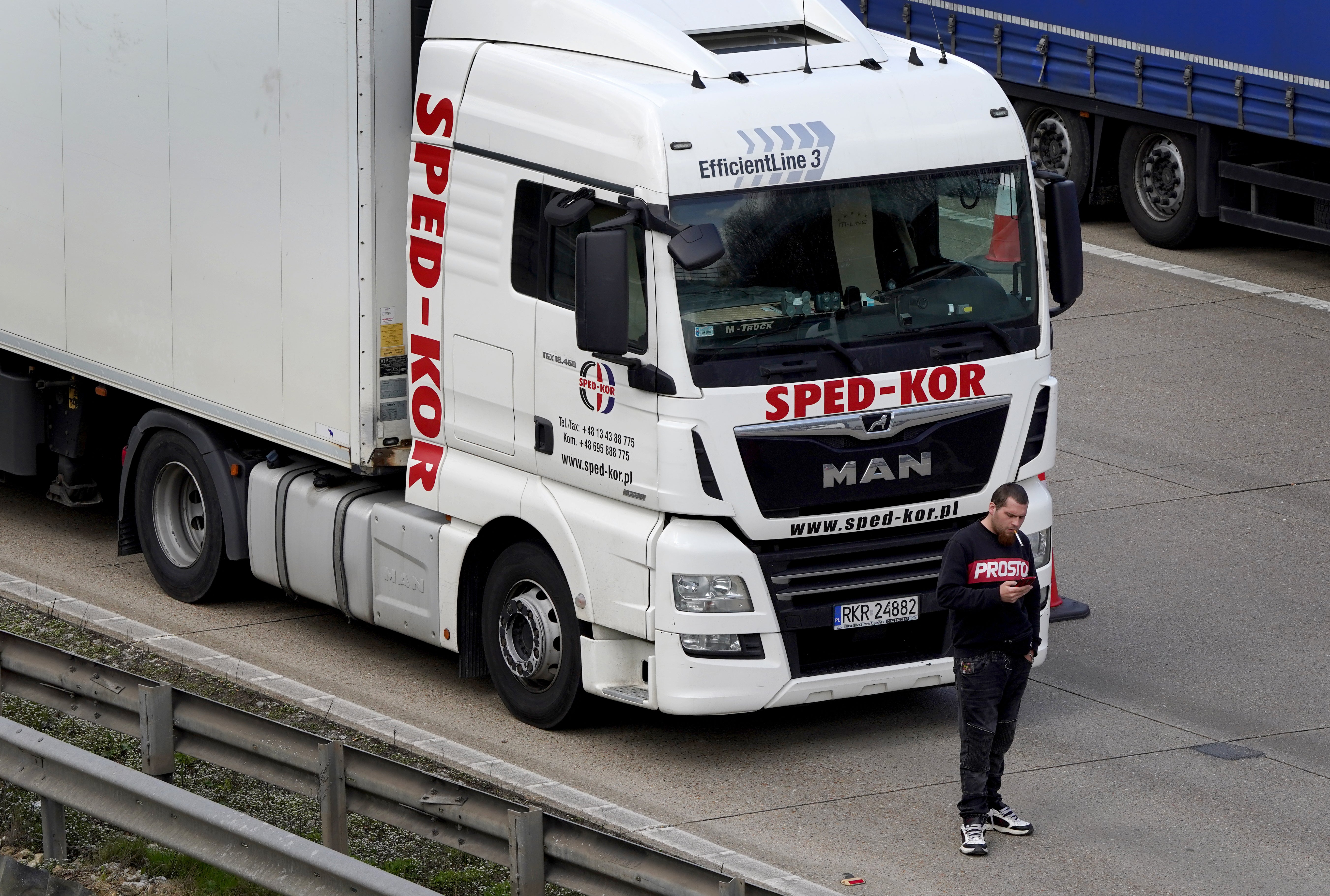
The Government must “grasp the nettle” and scale up lorry parking to provide a long-term solution to traffic gridlock in Kent rather than the “sticking plaster” approach used currently, transport experts have said.
Miles-long tailbacks seen in recent days around the Port of Dover which disrupted thousands of people’s summer travel plans, are “stark evidence of how fragile our continental links across the Channel can be” the RAC Foundation said.
The transport policy and research organisation called for investment in extra lorry parking with facilities for drivers instead of relying on what it branded an “inadequate solution of turning a motorway into a lorry park”.
The current approach to dealing with disruption to services across the English Channel is called Operation Brock.

It involves EU-bound freight traffic using the coastbound carriageway on the M20 where they are queued and released when space at the Port of Dover or the Eurotunnel becomes available.
But Steve Gooding, director of the RAC Foundation, said this plan brings “massive disruption” to the surrounding area, as part of the M20 is closed to non-freight traffic and therefore motorists wanting to travel in or through Kent have to follow diversions and endure longer journeys.
He said the disruption seen this weekend is not “new and novel”, adding that tailback problems “have been around for decades and are stark evidence of how fragile our continental links across the Channel can be”.
Successive governments have failed to grasp the nettle and invest in the scale of extra lorry parking— Steve Gooding, RAC Foundation
He added: “Even when the new post-Brexit customs regime has bedded down, ferry services can still fall prey to foul weather and industrial action.
“Successive governments have failed to grasp the nettle and invest in the scale of extra lorry parking – with facilities for drivers – instead relying on the inadequate solution of turning a motorway into a lorry park, with the consequent massive disruption that brings to the surrounding area.
“It’s high time we replaced the sticking plaster with a resilient solution worthy of the name.”
His comments were echoed by Mark Simmonds, director of policy and external affairs at the British Ports Association, who said the current approach is perhaps not a long-term solution to problems in the area.
He told BBC Breakfast: “It’s good to have better facilities for freight. I’m not sure Operation Brock is a long-term solution to these issues.
“The Port of Dover and other ports will be talking to Government about that and we’ll continue to have those discussions.”

A spokesman for the Department for Transport said: “We are investing £32.5 million to improve lorry parking facilities across England, which will help enable drivers to plan their journeys and stops better.”
Mr Simmonds also raised concerns around a future Entry/Exit System (EES), due to be introduced by the EU from May 2023.
Port of Dover chief executive Doug Bannister has previously spoken of worries that new biometric checks at the border could see people having to exit their vehicles to undergo the checks – something that could cause massive delays in the Kent port.
Mr Simmonds said drivers and passengers having to get out of their vehicles could add “significant amounts of time for outbound passengers”, describing it as a “real concern”.
He told the BBC: “That system has been designed for passengers going through airports rather than seaports. It’s not really designed for people passing through border controls in their cars and it’s critical that we get that fixed before it comes in.”
A Government spokesperson said: “The EU is planning to introduce new Entry/Exit system checks for non-EEA passengers at the border.
“We understand the concerns of the sector and are working with port authorities, operators and the French Government to ensure there is minimal disruption, particularly where checks are conducted by French officers prior to departure as is the case at Dover.”







